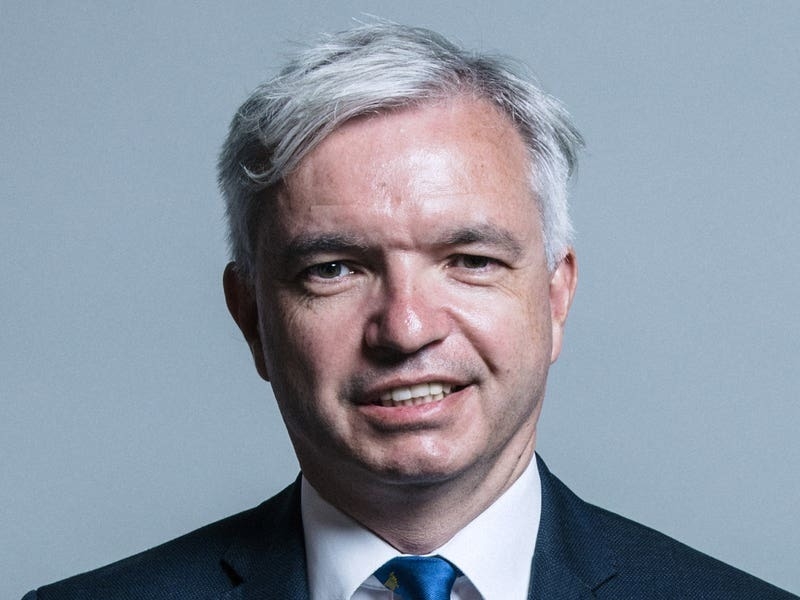The latest grim forecast from the International Monetary Fund (IMF) sees Britain fare worse than every other major economy as it appears to be suffering a bigger blow from the cost-of-living crisis.
Here we look at what is behind the IMF’s pessimism for the UK economy and how worried we should be.
– Why is the UK performing worse than other countries?
The IMF believes the UK will suffer a 0.6% contraction over 2023, predicting that it will be the only one of the major economies tracked in its report to suffer a recession.
It had a stab at explaining why it believes the UK is the outlier, suggesting it is down to three main factors.
Firstly, the UK’s reliance on natural gas, which has seen prices skyrocket since Russia’s invasion of Ukraine. This has pushed up inflation, which hit 11.1% last October and is still above 10%.

Lastly, it reckons that the UK has had to raise interest rates at a faster pace than other countries, because of the sky-high inflation, and that this is putting further pressure on the economy.
With a number of UK borrowers still on variable rate mortgages, albeit far less than in the past, this has hit their pockets hard and will further constrain consumer spending.
Advanced economies will grow at 1.2% in 2023, a sharp decline from 2.7% in 2022, before rising to 1.4% in 2024. About 90% of advanced economies are projected to see a decline in growth this year. https://t.co/4ifKc9pKeL #WEO pic.twitter.com/9HwYfVkvhf
— IMF (@IMFNews) January 31, 2023
– Has Brexit played a part in all this?
Labour certainly believes the UK’s exit from the EU has impacted our economy.
While it is unclear how much Brexit has affected gross domestic product (GDP) directly, there are many reports and anecdotal evidence from companies suggesting the shrinking workforce is largely down to the EU withdrawal.
– How about last year’s disastrous mini-budget?
It has been widely acknowledged that last September’s ill-fated mini-budget under former Prime Minister Liz Truss and the market turmoil that followed have left the UK facing higher mortgage rates than would otherwise be the case – dubbed by many as the Truss Premium.
Given that the IMF points to the unhelpful pressure on households by higher mortgage rates as one of the reasons for the UK’s under-performance, this would suggest that some of the economic pain may be down to home-grown problems.

It is important to remember that the IMF forecast is just that – a forecast. And forecasts can be wrong, as the Government has been quick to point out.
Chancellor Jeremy Hunt rebuffed the IMF’s latest pessimism, stressing that many predictions about the UK economy last year proved to be wrong.
It is true that the IMF has upgraded its predictions for the UK economy in 2022 twice since last July.
It predicted growth of 3.2% in July, then 3.6% in October and now 4.1% in its latest report – which would see the UK top of the league among the G7 nations.
? The IMF projects global growth to fall from 3.4% in 2022 to 2.9% in 2023, and then rise to 3.1% in 2024. Inflation is peaking amid low growth. Read our analysis in the World Economic Outlook Update. https://t.co/4ifKc9qi4j #WEO pic.twitter.com/5tdSaw0Q81
— IMF (@IMFNews) January 31, 2023
Mr Hunt said last week in his first major speech that “declinism about Britain was wrong in the past and it is wrong today”.
But the IMF’s forecast adds to mounting fears over the UK economy in 2023, with the Organisation for Economic Co-operation and Development (OECD) also warning recently that it believes the UK economy will perform worse than any of the world’s seven most advanced nations in 2023.
– Are there any reasons for optimism?
Bank of England boss Andrew Bailey said earlier this month that the recession was likely to be shallower than at first feared.
The Bank will give its latest economic forecasts on Thursday when it is also expected to deliver another rate hike, from 3.5% to 4%.
Economists also believe the Bank will upgrade its forecasts for the economy after a stronger-than-predicted performance in late 2022, giving a glimmer of hope for inflation-battered Britain.






